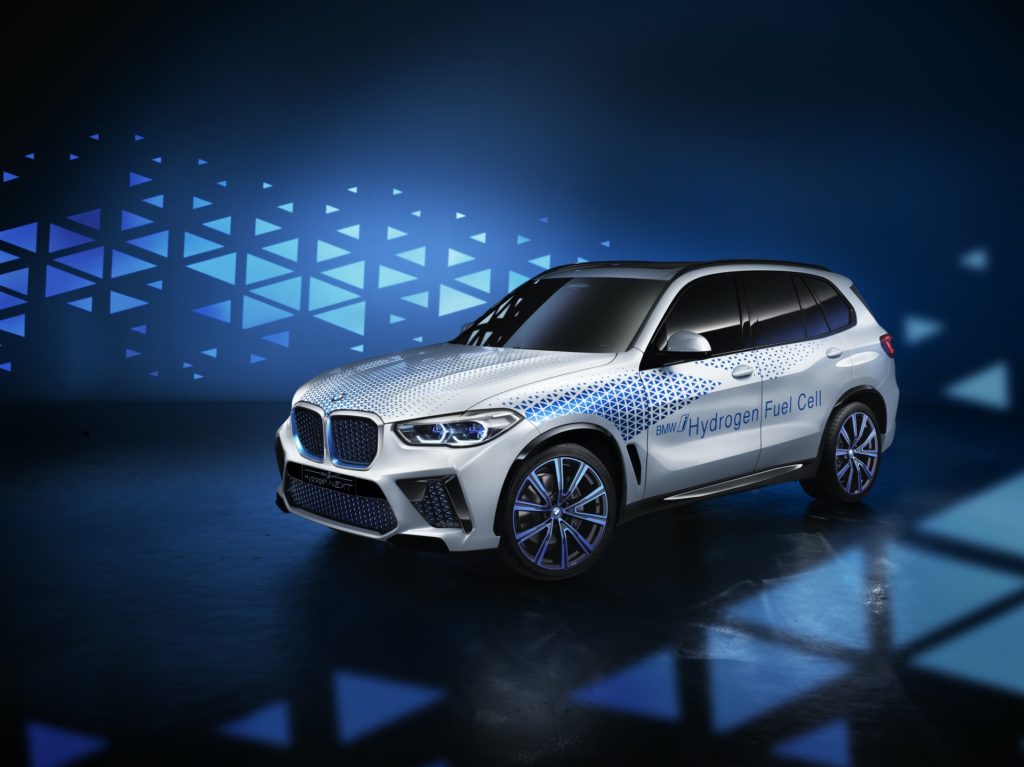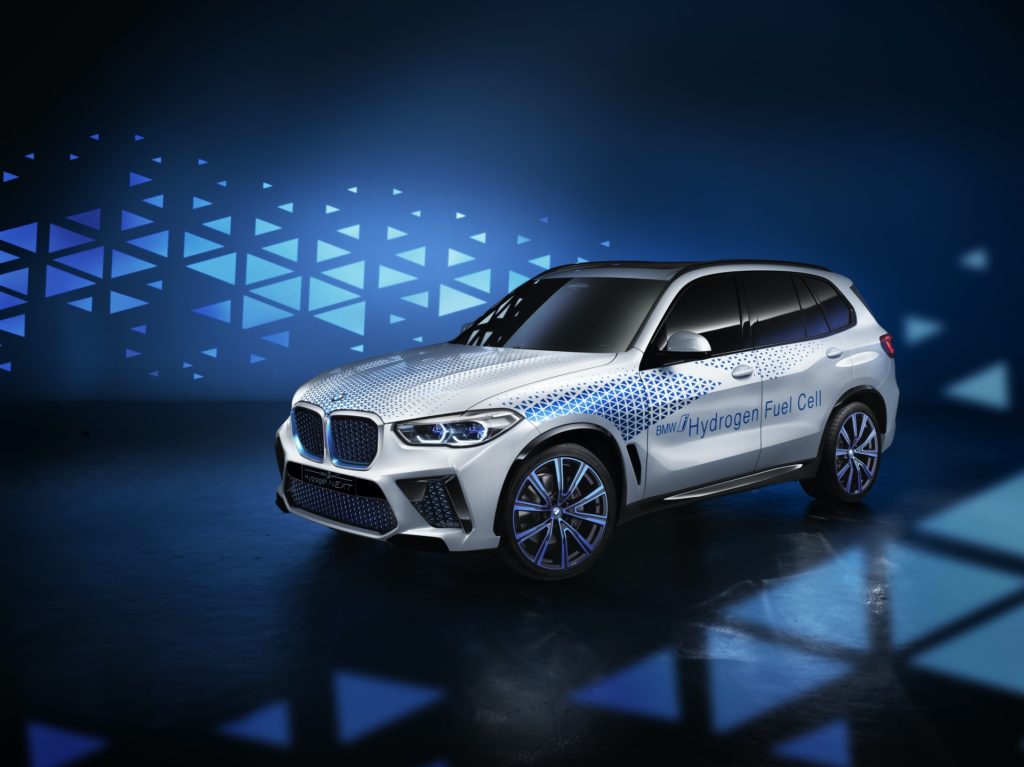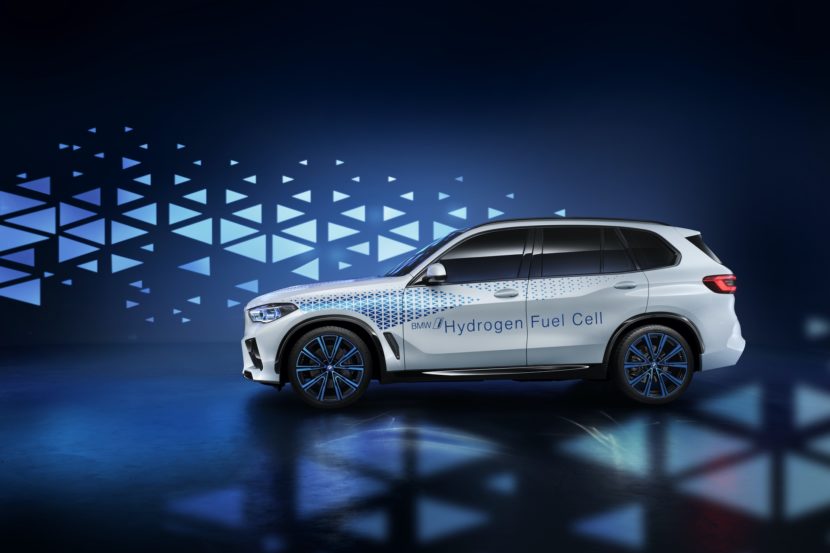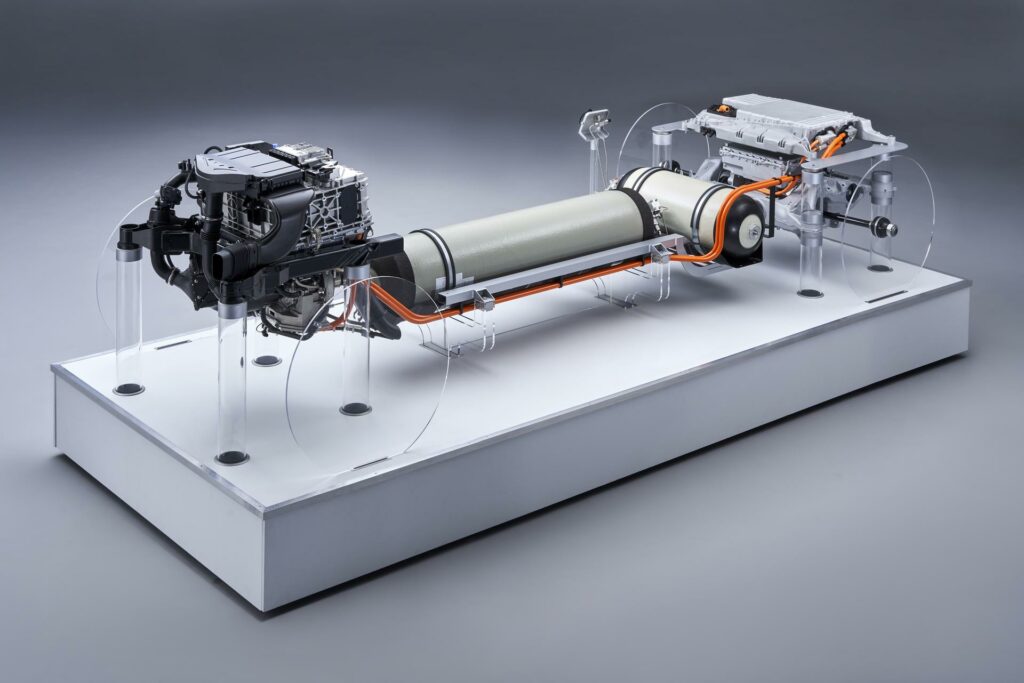In recent times, there have been many brands that have frozen, at least temporarily, their developments related to the hydrogen fuel cell to focus on battery-powered electric cars. However, even though this technology has been abandoned by giants such as Volkswagen or Honda, other manufacturers continue to bet decisively on it: Toyota, Hyundai… and BMW.
According to a recent report, BMW intends to offer its first mass-produced hydrogen car by 2025. On the other hand, by 2030, it plans to have a complete range of this type of vehicle to offer. Although these plans are more conservative than those of Toyota and Hyundai, which are already sold by the Mirai and Nexo, it is still an ambitious and risky bet. Especially considering the high costs of developing this type of technology today.
BMW plans to produce a hydrogen version of its X5 SUV in a limited way by 2022. Called I Hydrogen NEXT, it will have a 374 hp powertrain and will be a first approach to the commercialization of this technology by the company. Jürgen Guldner, senior vice president responsible for hydrogen fuel cell technology at BMW, states the following:
“We still have to define which model will be produced in 2025, but it will surely be a high-end vehicle. Such a model will offer enough space to house the fuel tanks for hydrogen. Furthermore, since development costs are higher [than in a conventional car], such a vehicle will allow better profitability. The price of future hydrogen cars is still under discussion, as current efforts are focused on cost reduction.”
BMW has been collaborating with Toyota in the development of fuel cells since 2013, so it is highly likely that the hydrogen models of both companies share technical solutions. According to most rumors, the first production BMWs to have a hydrogen fuel cell will be derived from the X5, X6, and X7, BMW’s largest SUVs. This will be ideal for cost and space (BMW anticipates placing the hydrogen tanks in the central tunnel of your vehicles).
Today, the expansion of the hydrogen fuel cell faces several problems beyond its high cost of development and production. The refueling infrastructure is minimal and expensive to expand, while the generation of hydrogen requires a lot of energy, to which should be added the problem of transport and storage of high-pressure fuel.




